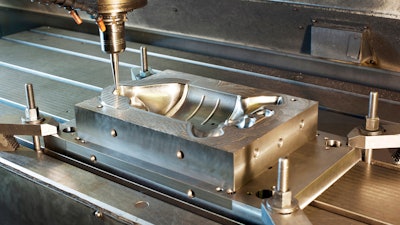
The COVID-19 pandemic and its powerful, lasting effects across the global supply chain forced many companies to take hard looks at their operations — particularly small and mid-size businesses.
For some distributors, that meant adding something outside their usual wheelhouse: manufacturing.
Industrial Distribution recently spoke via email with Epicor Vice President of Product Management John Caricco about what the business software company calls “distro-facturing.”
ID: How would you define “distro-facturing?”
"Distro-facturing" is an emerging trend of small to mid-size distribution businesses diversifying their offerings, including light manufacturing, to compete with large enterprises and meet customer needs.
ID: How has this trend evolved and changed in recent years?
The seismic shifts of the past few years have forced many SMBs in manufacturing and distribution industries to shed traditional roles and empower themselves with expanded in-house capabilities to make, move and sell amidst an ever-changing supply chain landscape.
According to Epicor’s Industry Insights Report, which interviewed 1,350 IT decision-makers in the U.S., U.K., Australia, and New Zealand, 78% of businesses shifted their business model over the last year to better compete. Of these businesses, 85% agree they have seen growth because of diversifying their offerings.
Enterprise software innovations have allowed for unprecedented visibility into the businesses at a granular level, allowing leaders to make data-driven decisions and grow their business like never before. The emergence of this trend signifies that the increased visibility and capabilities of software ERP are motivating businesses – who may have been in business for decades – to shift their business model and do so in a cost and time-effective manner with the right partner.
ID: How are these distributors diversifying, and what are they adding to their operations to make it happen?
At the core of the distro-facturing trend, distributors are diversifying their offerings to include capabilities traditional to manufacturers and big box retailers. The Industry Insights report finds 56% of distributors are now offering direct-to-customer-sales, forming the new breed of hybrid businesses dubbed “distro-facturers” or “distro-retailers.”
By implementing strategies such as delivery capabilities, e-commerce and configure-price-quote, hybrid businesses are thriving and increasing confidence in their manufacturing or supply chain businesses despite ongoing industry challenges.
ID: How should a smaller distributor approach becoming a “distro-facturer?”
Small to mid-size companies who are looking to compete should consistently be evaluating their business strategies, adjusting them to expand their offerings and leaning into highly flexible cloud-based technologies to drive agility and performance. While it may be tempting to act rapidly out of fear of being left behind, careful planning, the right integration partner and a solid implementation strategy will carry the day.
One of Epicor’s distribution customers, Duncan-Parnell, has been around since the 1940s. This family business started out printing blueprints and pivoted to printing other types of signs and graphics as “blueprint” technology faded. Fast forward to today – their geospatial distribution business model now makes up 75% of their business and the manufacturing of signage, large banners, and other digital printing now accounts for 25% of the business today. Utilizing ERP technology with industry-specific knowledge has allowed the company to diversify, grow and scale their long-standing business and compete with larger enterprise businesses as an SMB.






















